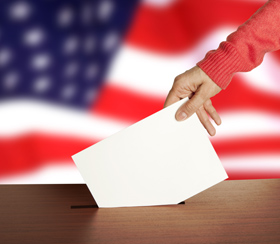Federal judge gives Florida voters more time to validate ballots with mismatched signatures

Image from Shutterstock.
A federal judge in Florida has ruled that election supervisors must give voters until 5 p.m. Saturday to validate ballots with signatures that don’t match signatures on file.
U.S. District Judge Mark Walker of Tallahassee ruled early Thursday that Florida procedures regarding mismatched signatures were unconstitutionally applied, report the Washington Post, the Miami Herald, the Tallahassee Democrat and ABC News.
“The precise issue in this case is whether Florida’s law that allows county election officials to reject vote-by-mail and provisional ballots for mismatched signatures—with no standards, an illusory process to cure, and no process to challenge the rejection—passes constitutional muster,” Walker wrote. “The answer is simple. It does not.”
Florida law allows any registered eligible voter to vote by mail. Provisional ballots are cast when there is uncertainty over eligibility to vote. Out of 45 Florida counties that had reported so far, the state rejected more than 4,000 ballots for inconsistent signatures, Walker said. Florida has 67 counties.
Laypeople are making decisions on mismatched signatures, Walker said, and counties have the discretion to apply their own standards and procedures in making the determination.
Deadlines also are problematic. Mail-in ballots are accepted until 7 p.m. on the day of the election, and election officials can reject a ballot for mismatched signatures up to the day after the election. But people who want to validate a mismatched signature have to do so by 5 p.m. the day before an election.
“The voter therefore gets no chance to cure, since curing must be done by 5 p.m. the day before the election,” Walker wrote.
Walker identified another “shocking” quirk of Florida law. “Even though a voter cannot challenge a vote rejected as illegal,” he wrote, “any voter or candidate could challenge a vote accepted as legal.”
Walker ruled in a suit by the Democratic Executive Committee of Florida and Sen. Bill Nelson, the Democratic incumbent who slightly is trailing Gov. Rick Scott in his bid for re-election.
The National Republican Senatorial Committee already has filed a notice of appeal. Walker’s decision likely didn’t satisfy Nelson either, since his lawyers had sought a more sweeping ruling invalidating the signature-match requirement, according to the Washington Post.



